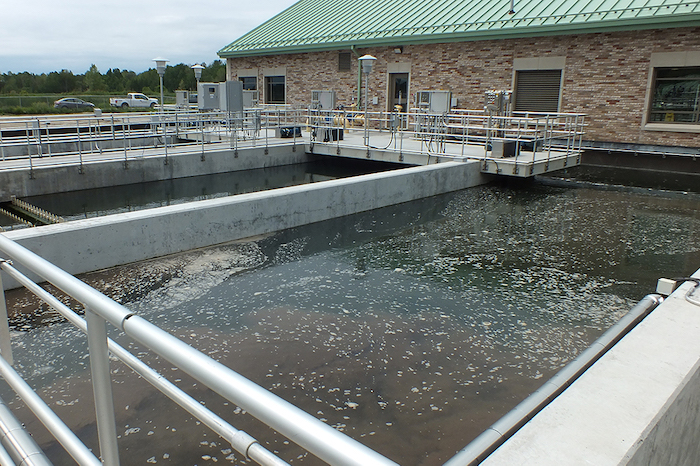
What’s flushed away could help uncover the second wave of COVID-19
July 16, 2020
By CCE

The project will reach such sites as the Nonquon Water Pollution Control Plant in Port Perry Ont. Photo courtesy Ontario Tech University.
Cole Engineering Group, a consulting firm headquartered in Markham, Ont., is contributing to a new research project that aims to detect an anticipated second wave of the COVID-19 pandemic by collecting and testing untreated sewage samples from water pollution control plants in nearby Durham Region.
Researchers with the faculty of science at the University of Ontario Institute of Technology (branded as Ontario Tech University) are working with the region’s health and works departments to check the samples for traces of the novel coronavirus and develop a model for predicting new cases and identifying new hot spots. In turn, the health department will determine appropriate steps to prevent or limit further infection.
The development of early detection tools for wastewater could indicate the severity of infection in a community, based on viral DNA, pharmaceutical and metabolite indicators and symptom-related biomarkers. The capacity for targeted sampling and predictive mathematical modelling near long-term care homes, for instance, could provide an early warning system for vulnerable populations.
“This project showcases the kind of societal impact we can have by bringing industry, government and universities together,” says Mohsen Mortada, Cole’s president and CEO. “We’re proud to partner with Ontario Tech and Durham to help fight COVID-19.”
Besides Cole, which is contributing $30,000 to the project, other key partners providing financial support include the Ontario Clean Water Agency (OCWA) at $50,000 and Mitacs, a national non-profit organization that works with academic institutions to conduct research in fields related to industrial and social innovation, at $90,000. There will also be major in-kind contributions from Durham Region.
The sampling protocol and models will be made available for use by other communities across Canada.